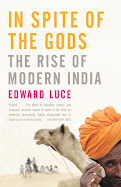My review of pages 1-15 of the article :
For one and a half centuries after the Peace of Westphalia created the modern international system, wars and conflicts were engaged by monarchs, emperors, and other such heads of state. These leaders were motivated by personal or familial desires such as continuity of ruling and expansion of territory. As nation-states developed, conflicts were engaged in my peoples, rather than individual leaders. WWI emphasized the varying ideologies in the world's nation-states, and as such, once again the battle lines shifted to reflect ideological differences, culminating in WWII and continuing on to the Cold War. Post-Cold War, the international political arena began to include the over-looked non-Western nations, and in 1993, Samuel Huntington hypothesized that the basis of conflict in the all-inclusive world would now be culture. Nation-states will continue to be the guiding structures, as compared to a reversal to conflicts between national leaders; but varying civilizations will cause global conflict.
Huntington defines a civilization as a cultural entity which generally has similarities with other cultures within a relatively defined geographical form, such as a nation, but yet differing from relatively foreign culture . For example, he points out the minor differences, but great commonalities between Northern Italian and Southern Italian cultures versus Italians and Germans. Short of identifying ourselves as members of certain species, the broadest cultural entities to which we belong, are our civilizations. These civilizations are of varying sizes and just as their members, will be dynamic, as individuals redefine themselves.
Huntington states that the reason civilizations will clash will be the interaction between the seven or eight major civilizations, namely Western, Confucian, Japanese, Islamic, Hindu, Slavic-Orthodox, Latin American and possibly African civilizations. To explain why the differences among civilizations will take center stage, Huntington first explains that these differences are real and basic. By this, he means that members of each civilization can relate to each elemental difference, and can define themselves at least somewhat, based on that element. These elements could be religion, culture, language and others , all tied by the fact that they took years to develop, and thus are unlikely to be abandoned soon. Although differences may not necessarily translate into conflict, they often do, and according to the article, civilizational differences have resulted in the most prolonged and violent wars of time.
The second reason why civilizations will become more prominent is that people from different civilizations are coming into ever closer contact and this more intimate contact will bring into focus the inherent differences. While Huntington does not explicitly state it, I believe globalization is the force responsible for the more intimate contact between civilizations. This view could present a new perspective of discussing globalization , since current discussion tends to focus on either the diversifying or homogenizing effects of globalization.
The third propeller of the clash of civilizations is what is referred to as "economic modernization" and the ongoing social change in various parts of the world, both of which Huntington expects to weaken the nation-state as a basis of identity. In place of nation-stated, people will are themselves by religion, an element that is far more transcendental to most people than nation-state identity.
The fourth propeller is essentially the clash between the Western and non-Western nations. At the time of writing this article, Huntington believed the West was at the peak of its power, and simultaneously, there were 'grass roots' movements in various civilizations across the world. The combination of one civilization being at its peak, with the increasing fervor of other civilizations to affect the world in new ways, would lead to a momentous crossroad in the power to affect.
The fifth propeller of the clash harks back to the first one, which is based on the high personal regard and commitment that lends itself to cultural identity , versus economic status or political ideology. The last propeller is the rise of economic regionalism evident over a decade ago, and more evident today in the European Union and American Union.
Huntington predicts that the clash of civilizations will occur at two levels; the macro and micro levels. At the micro level, specific groups along civilization fault lines will conflict about exactly where the lines are drawn, while at the macro level, the dominant nation-states in different civilizations will battle for the international spotlight. Thus far, there have been conflicts along fault lines such as ; the West vs. Islam, Protestant vs. Catholic Europeans Christianity vs. Islam. In Africa, the fault lines lie between Christianity vs Islam vs Animism. One important distinction made between the contact within civilizations is the violence that abounds historically. Ethnic cleansing in Eurasia is a large source of cultural violence and continues to be so today.
In the article, Muslim Indian author M. J. Akbar predicts that the next the clash of civilizations and battle for a new world order will be instigated by Islamic confrontation of the West. Considering esoteric knowledge, I am not convinced that the Islamic world is the instigator, but rather the vehicle of confrontation ,which already began with the attacks of 9/11.








No comments:
Post a Comment